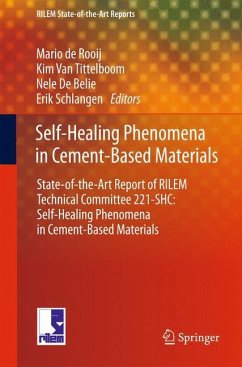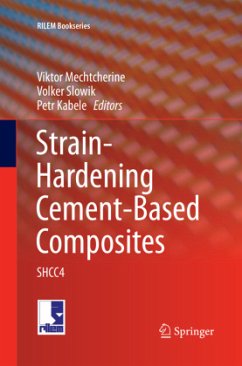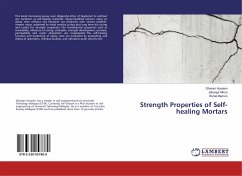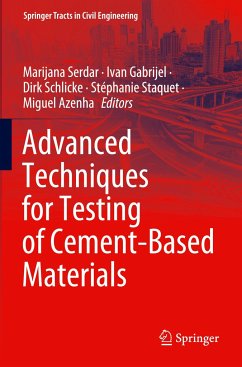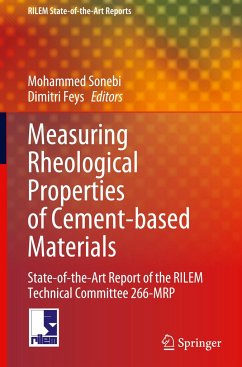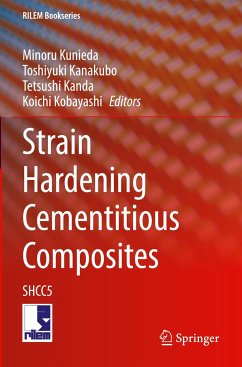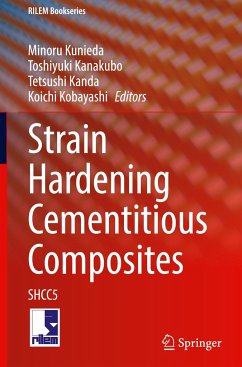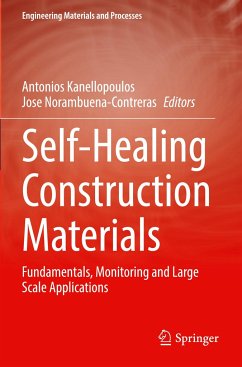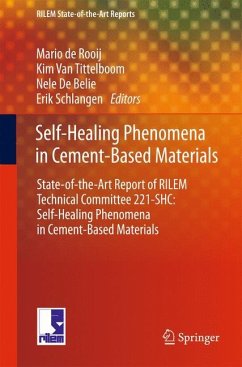
Self-Healing Phenomena in Cement-Based Materials
State-of-the-Art Report of RILEM Technical Committee 221-SHC: Self-Healing Phenomena in Cement-Based Materials
Herausgegeben: de Rooij, Mario; Van Tittelboom, Kim; De Belie, Nele; Schlangen, Erik
Versandkostenfrei!
Versandfertig in 6-10 Tagen
76,99 €
inkl. MwSt.

PAYBACK Punkte
38 °P sammeln!
Self-healing materials are man-made materials which have the built-in capability to repair damage. Failure in materials is often caused by the occurrence of small microcracks throughout the material. In self-healing materials phenomena are triggered to counteract these microcracks. These processes are ideally triggered by the occurrence of damage itself.Thus far, the self-healing capacity of cement-based materials has been considered as something "extra". This could be called passive self-healing, since it was not a designed feature of the material, but an inherent property of it. Centuries-ol...
Self-healing materials are man-made materials which have the built-in capability to repair damage. Failure in materials is often caused by the occurrence of small microcracks throughout the material. In self-healing materials phenomena are triggered to counteract these microcracks. These processes are ideally triggered by the occurrence of damage itself.
Thus far, the self-healing capacity of cement-based materials has been considered as something "extra". This could be called passive self-healing, since it was not a designed feature of the material, but an inherent property of it. Centuries-old buildings have been said to have survived these centuries because of the inherent self-healing capacity of the binders used for cementing building blocks together.
In this State-of-the-Art Report a closer look is taken at self-healing phenomena in cement-based materials. It is shown what options are available to design for this effect rather than have it occur as a "coincidental extra".
Thus far, the self-healing capacity of cement-based materials has been considered as something "extra". This could be called passive self-healing, since it was not a designed feature of the material, but an inherent property of it. Centuries-old buildings have been said to have survived these centuries because of the inherent self-healing capacity of the binders used for cementing building blocks together.
In this State-of-the-Art Report a closer look is taken at self-healing phenomena in cement-based materials. It is shown what options are available to design for this effect rather than have it occur as a "coincidental extra".



